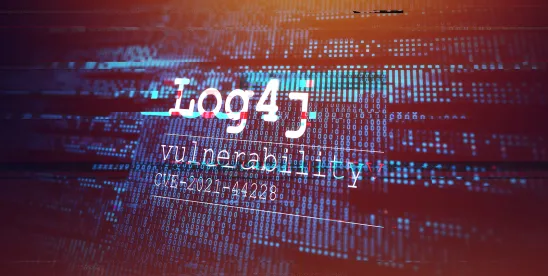A significant shift in cybersecurity compliance is on the horizon, and businesses need to prepare. Starting in 2024, organizations will face new requirements to report cybersecurity incidents and ransomware payments to the federal government. This change stems from the U.S. Department of Homeland Security’s (DHS) Cybersecurity Infrastructure and Security Agency (CISA) issuing a Notice of Proposed Rulemaking (NPRM) on April 4, 2024. This notice aims to enforce the Cyber Incident Reporting for Critical Infrastructure Act of 2022 (CIRCIA). Essentially, this means that “covered entities” must report specific cyber incidents and ransom payments to CISA within defined timeframes.
Background
Back in March 2022, President Joe Biden signed CIRCIA into law. This was a big step towards improving America’s cybersecurity. The law requires CISA to create and enforce regulations mandating that covered entities report cyber incidents and ransom payments. The goal is to help CISA quickly assist victims, analyze trends across different sectors, and share crucial information with network defenders to prevent other potential attacks.
The proposed rule is open for public comments until July 3, 2024. After this period, CISA has 18 months to finalize the rule, with an expected implementation date around October 4, 2025. The rule should be effective in early 2026. This document provides an overview of the NPRM, highlighting its key points from the detailed Federal Register notice.
Cyber Incident Reporting Initiatives
CIRCIA includes several key requirements for mandatory cyber incident reporting:
- Cyber Incident Reporting Requirements – CIRCIA mandates that CISA develop regulations requiring covered entities to report any covered cyber incidents within 72 hours from the time the entity reasonably believes the incident occurred.
- Federal Incident Report Sharing – Any federal entity receiving a report on a cyber incident after the final rule’s effective date must share that report with CISA within 24 hours. CISA will also need to make information received under CIRCIA available to certain federal agencies within the same timeframe.
- Cyber Incident Reporting Council – The Department of Homeland Security (DHS) must establish and chair an intergovernmental Cyber Incident Reporting Council to coordinate, deconflict, and harmonize federal incident reporting requirements.
Ransomware Initiatives
CIRCIA also authorizes or mandates several initiatives to combat ransomware:
- Ransom Payment Reporting Requirements – CISA must develop regulations requiring covered entities to report to CISA within 24 hours of making any ransom payments due to a ransomware attack. These reports must be shared with federal agencies similarly to cyber incident reports.
- Ransomware Vulnerability Warning Pilot Program – CISA must establish a pilot program to identify systems vulnerable to ransomware attacks and may notify the owners of these systems.
- Joint Ransomware Task Force – CISA has announced the launch of the Joint Ransomware Task Force to build on existing efforts to coordinate a nationwide campaign against ransomware attacks. This task force will work closely with the Federal Bureau of Investigation and the Office of the National Cyber Director.
Scope of Applicability
The regulation targets many “covered entities” within critical infrastructure sectors. CISA clarifies that “covered entities” encompass more than just owners and operators of critical infrastructure systems and assets. Entities actively participating in these sectors might be considered “in the sector,” even if they are not critical infrastructure themselves. Entities uncertain about their status are encouraged to contact CISA.
Critical Infrastructure Sectors
CISA’s interpretation includes entities within one of the 16 sectors defined by Presidential Policy Directive 21 (PPD 21). These sectors include Chemical, Commercial Facilities, Communications, Critical Manufacturing, Dams, Defense Industrial Base, Emergency Services, Energy, Financial Services, Food and Agriculture, Government Facilities, Healthcare and Public Health, Information Technology, Nuclear Reactors, Materials, and Waste, Transportation Systems, Water and Wastewater Systems.
Covered Entities
CISA aims to include small businesses that own and operate critical infrastructure by setting additional sector-based criteria. The proposed rule applies to organizations falling into one of two categories:
- Entities operating within critical infrastructure sectors, except small businesses
- Entities in critical infrastructure sectors that meet sector-based criteria, even if they are small businesses
Size-Based Criteria
The size-based criteria use Small Business Administration (SBA) standards, which vary by industry and are based on annual revenue and number of employees. Entities in critical infrastructure sectors exceeding these thresholds are “covered entities.” The SBA standards are updated periodically, so organizations must stay informed about the current thresholds applicable to their industry.
Sector-Based Criteria
The sector-based criteria target essential entities within a sector, regardless of size, based on the potential consequences of disruption. The proposed rule outlines specific criteria for nearly all 16 critical infrastructure sectors. For instance, in the information technology sector, the criteria include:
- Entities providing IT services for the federal government
- Entities developing, licensing, or maintaining critical software
- Manufacturers, vendors, or integrators of operational technology hardware or software
- Entities involved in election-related information and communications technology
In the healthcare and public health sector, the criteria include:
- Hospitals with 100 or more beds
- Critical access hospitals
- Manufacturers of certain drugs or medical devices
Covered Cyber Incidents
Covered entities must report “covered cyber incidents,” which include significant loss of confidentiality, integrity, or availability of an information system, serious impacts on operational system safety and resiliency, disruption of business or industrial operations, and unauthorized access due to third-party service provider compromises or supply chain breaches.
Significant Incidents
This definition covers substantial cyber incidents regardless of their cause, such as third-party compromises, denial-of-service attacks, and vulnerabilities in open-source code. However, threats or activities responding to owner/operator requests are not included. Substantial incidents include encryption of core systems, exploitation causing extended downtime, and ransomware attacks on industrial control systems.
Reporting Requirements
Covered entities must report cyber incidents to CISA within 72 hours of reasonably believing an incident has occurred. Reports must be submitted via a web-based “CIRCIA Incident Reporting Form” on CISA’s website and include extensive details about the incident and ransom payments.
Report Types and Timelines
- Covered Cyber Incident Reports within 72 hours of identifying an incident
- Ransom Payment Reports due to a ransomware attack within 24 hours of payment
- Joint Covered Cyber Incident and Ransom Payment Reports within 72 hours for ransom payment incidents
- Supplemental Reports within 24 hours if new information or additional payments arise
Entities must retain data used for reports for at least two years. They can authorize a third party to submit reports on their behalf but remain responsible for compliance.
Exemptions for Similar Reporting
Covered entities may be exempt from CIRCIA reporting if they have already reported to another federal agency, provided an agreement exists between CISA and that agency. This agreement must ensure the reporting requirements are substantially similar, and the agency must share information with CISA. Federal agencies that report to CISA under the Federal Information Security Modernization Act (FISMA) are exempt from CIRCIA reporting.
These agreements are still being developed. Entities reporting to other federal agencies should stay informed about their progress to understand how they will impact their reporting obligations under CIRCIA.
Enforcement and Penalties
The CISA director can make a request for information (RFI) if an entity fails to submit a required report. Non-compliance can lead to civil action or court orders, including penalties such as disbarment and restrictions on future government contracts. False statements in reports may result in criminal penalties.
Information Protection
CIRCIA protects reports and RFI responses, including immunity from enforcement actions based solely on report submissions and protections against legal discovery and use in proceedings. Reports are exempt from Freedom of Information Act (FOIA) disclosures, and entities can designate reports as “commercial, financial, and proprietary information.” Information can be shared with federal agencies for cybersecurity purposes or specific threats.
Business Takeaways
Although the rule will not be effective until late 2025, companies should begin preparing now. Entities should review the proposed rule to determine if they qualify as covered entities and understand the reporting requirements, then adjust their security programs and incident response plans accordingly. Creating a regulatory notification chart can help track various incident reporting obligations. Proactive measures and potential formal comments on the proposed rule can aid in compliance once the rules are finalized.
These steps are designed to guide companies in preparing for CIRCIA, though each company must assess its own needs and procedures within its specific operational, business, and regulatory context.




 />i
/>i

